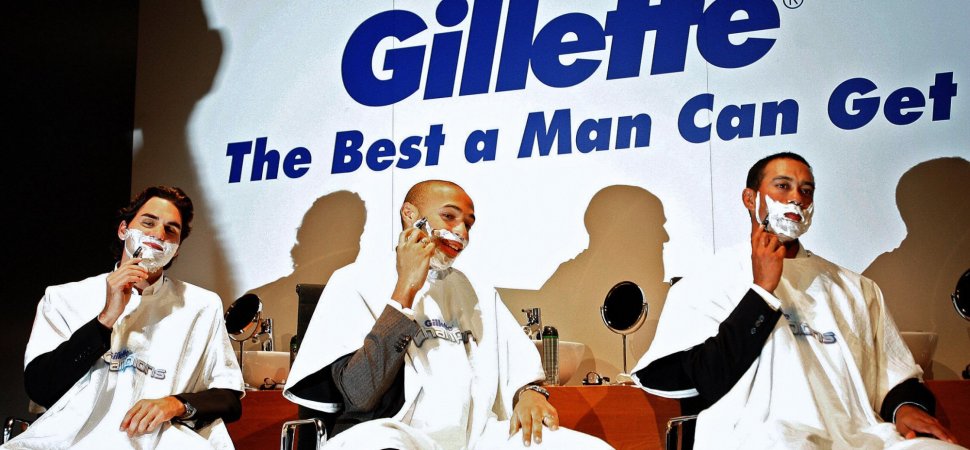When I think of Gillette, I think of men. My dad, my brother, your dad, your brother–they probably all use their products. Of course, you can’t forget about the Mecca of masculinity, Gillette Stadium–home of the New England Patriots and those big, strong men that seem to dominate every field. By the way, go Pats.
As you’ve probably heard, Gillette used their influential power to launch a new advertisement promoting their campaign “The Best Men Can Be.” It’s a play on their age-old tagline “The Best A Man Can Get” and emphasizes that Gillette is trying to make a new name for itself.
The advertisement, which has over 27 million views on YouTube alone, shows powerful imagery of young boys being forced to continue overly masculine stereotypes. The video also demonstrates that men and boys must hide their emotions, even when they are teased by other boys. Gillette even ridicules their own past advertisements, which objectified women in order to demonstrate a man’s power when he uses Gillette products.
These images, contrasted against a stream of news recordings detailing the #MeToo movement, suggest that the incredible pressure our society places on men and boys to uphold the tenets of masculinity is contributing to the wide-sweeping objectification and sexual assault of women.
I first watched this ad on my way back to school and thought “HECK YEAH! It’s finally happening! Men are acknowledging their role in this problem instead of continuing to blame women AND they’re actually doing something to stop it!”
But when I scrolled down and began reading the comments I was shocked by what I read. The vast majority of the comments declared a boycott on Gillette products (literally hashtagged #BoycottGillette), and several vows to grow beards in protest.
I read countless comments that wondered why a company “for men” would make an ad “against men.” Some called for a “toxic-femininity video.” And, as always with issues people wish to ignore, many people asked why Gillette was making a video over a problem that wasn’t a problem anymore.
My spirits slowly fell as a I realized that America wasn’t ready for this kind of campaign, at least the Americans that I read comments from. Somehow, which is hard to imagine in my little liberal-arts-school-bubble, people could still view an ad that denounces toxic masculinity as an attack on men as a whole.
So to those still unconvinced, I’ll say it again: masculinity is not a bad thing, and no one has said you should stop drinking your beer and playing your football and doing those things that you enjoy doing that create a sense of brotherhood between you and your men friends.
Toxic masculinity refers to the socially-constructed ideas that men are inherently violent, emotionally unavailable and sexually aggressive. Toxic masculinity, while hurting women, also hurts men. It declares that men can’t talk about their feelings or express love for their male friends. It leads to binge drinking and violence and, yes, sexual assault. But it is by no means an attack on men in general, nor does it state that masculinity is a bad thing.
The Gillette ad was a missed opportunity. Men, especially white middle- and upper-class men, are dominant in our society. They hold the power, call the shots and say who is valid and who is not.
While women certainly have more power than they did 50 years ago, men still hold that place of dominance. It takes men to convince other men to actively fight sexual assault, believe women and advocate for change. Gillette’s advertisement wasn’t an attack on men— it was a call to arms. To stand in solidarity with their sisters and girlfriends and wives and mothers, yes; but even more so, to liberate themselves.



